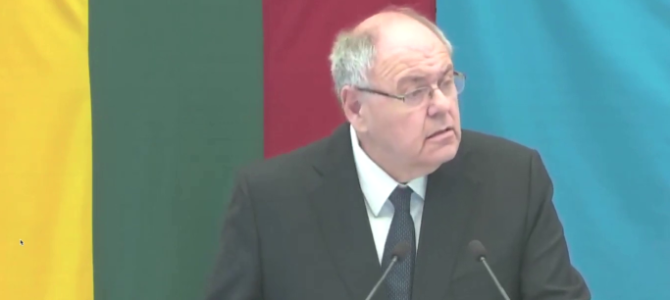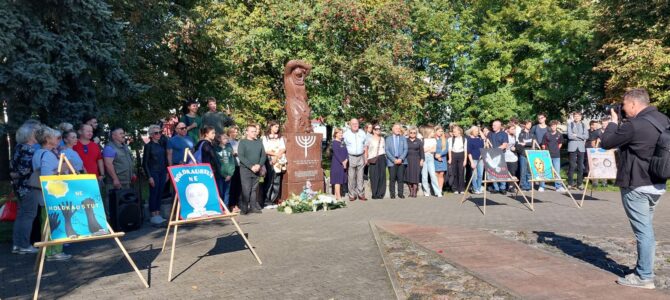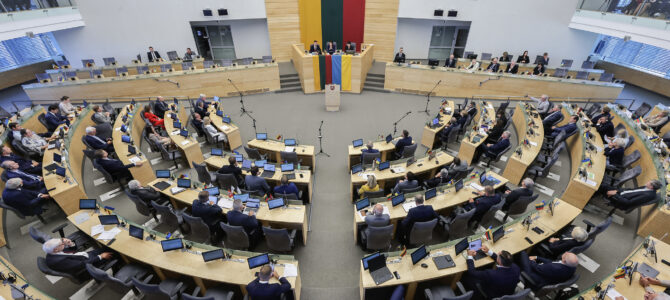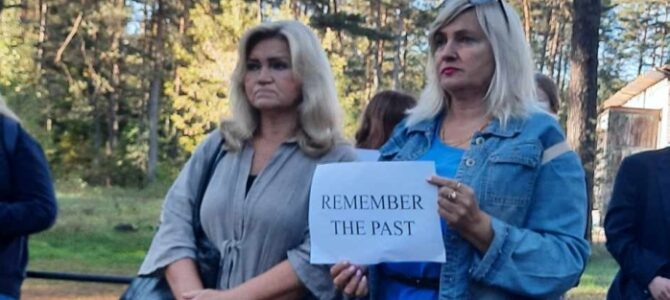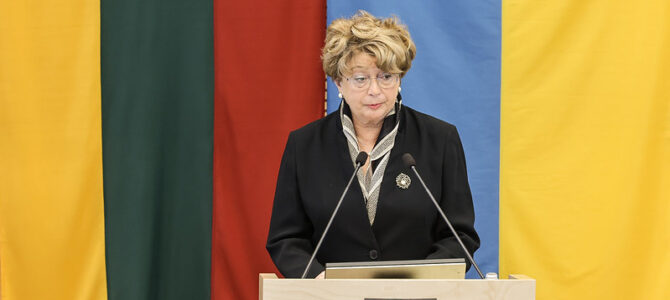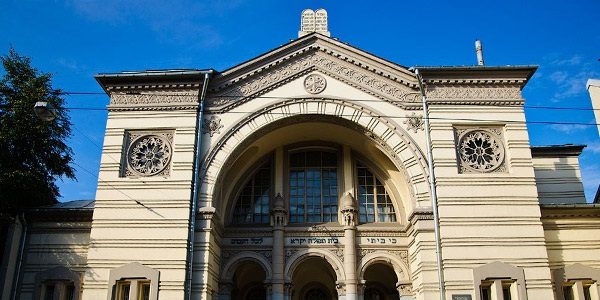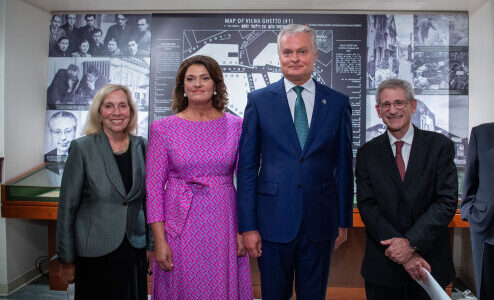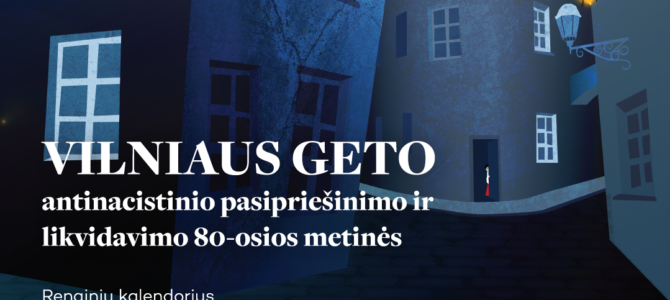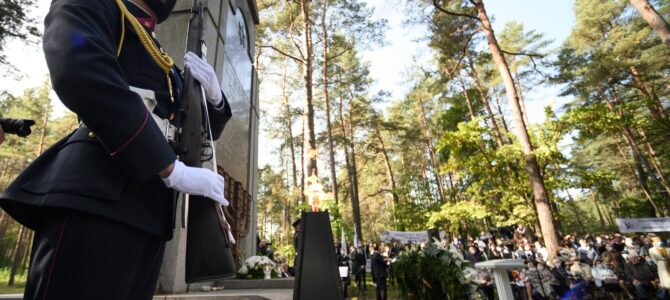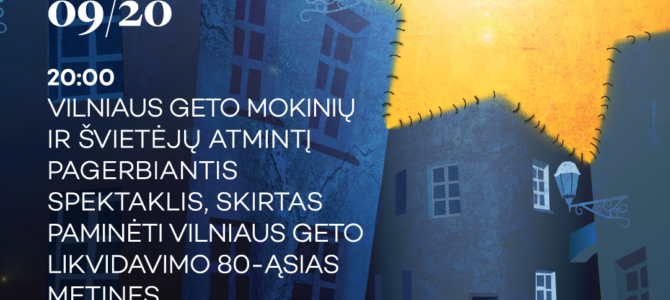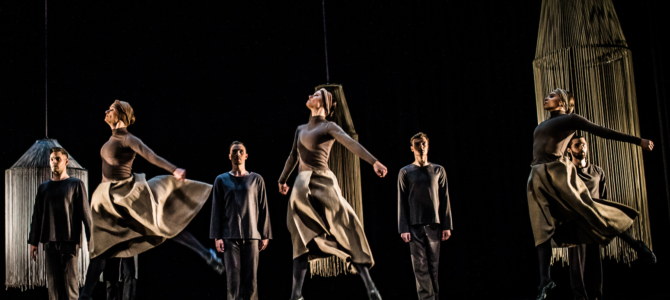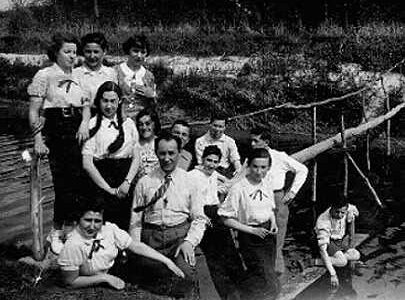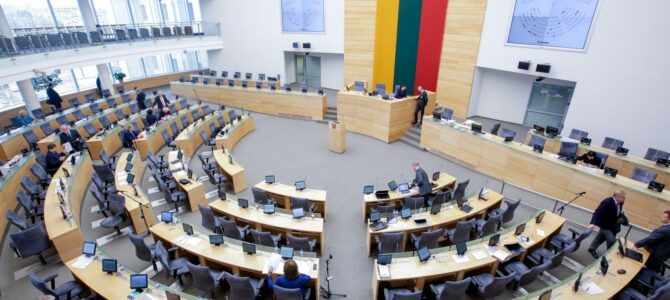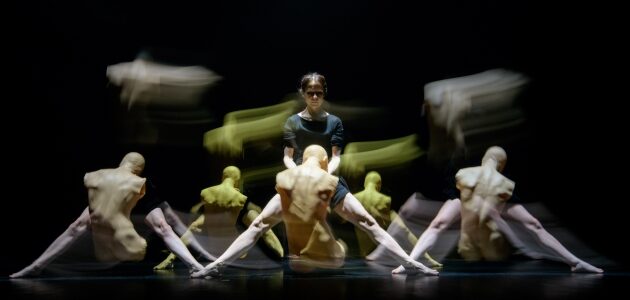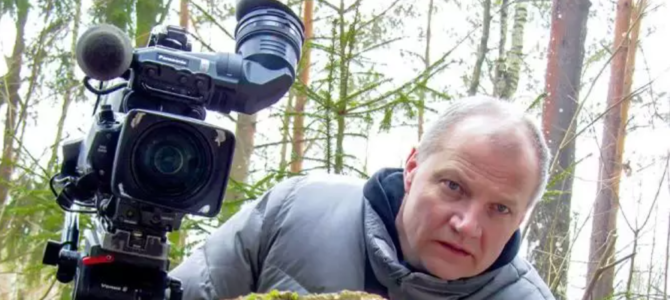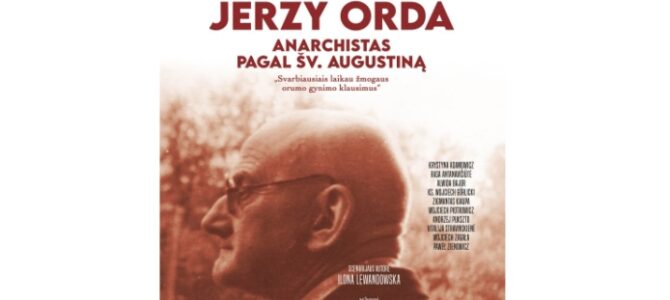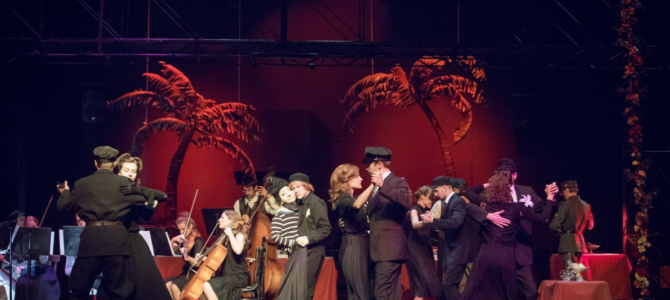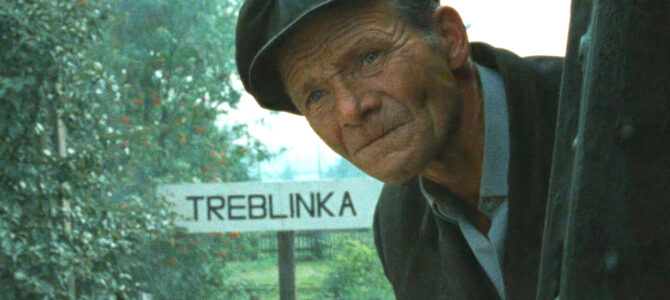Yad Vashem director Dani Dayan addressed a special sitting of the Lithuanian parliament convoked to mark the 80th anniversary of the destruction of the Vilnius ghetto. He called on Lithuania to stop heroizing murderers of Jews and to commemorate better the tragedy of the Holocaust.
“Hundreds of thousands of Lithuanian Jews were murdered in this country by the Germans and by their Lithuanian collaborators. And to a significant extent by the local population, characteristically distinct to Lithuania,” he told 112 MPs gathered for the special sitting.
“(A)n anti-Semite, especially a murderer of Jews, cannot be considered otherwise a good person. … For sure he cannot be considered a hero. In addition to refraining from attributing public honor to such butchers, Lithuania must consistently acknowledge that many of the Lithuanian Jews massacred in the Holocaust, died at the hands of their Lithuanian co-nationals, and that Lithuanians also took part in the extermination of Jews in neighboring countries. The zero-tolerance policy must apply also towards glorification of war criminals associated with the massacre of Jews. Such names as Noreika, Škirpa, Krikštaponis do not add to the honor of your nation, nor to its adherence to international norms of appropriate national remembrance,” he continued.


